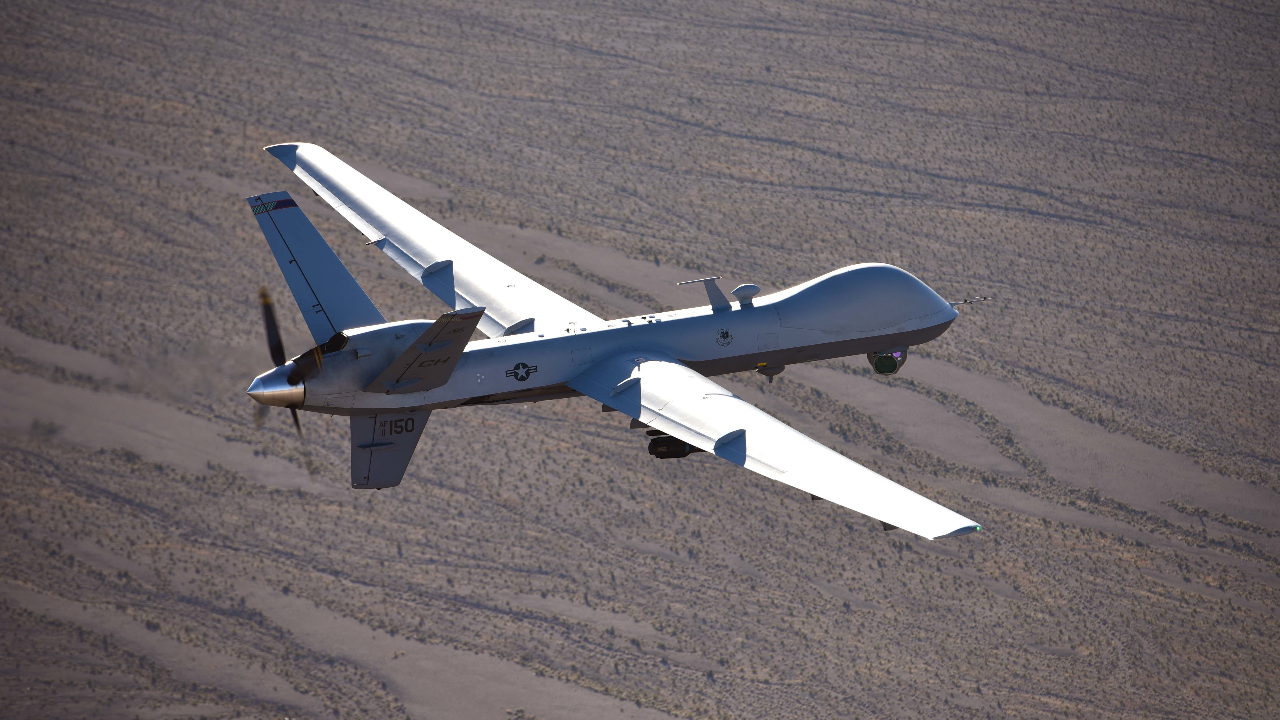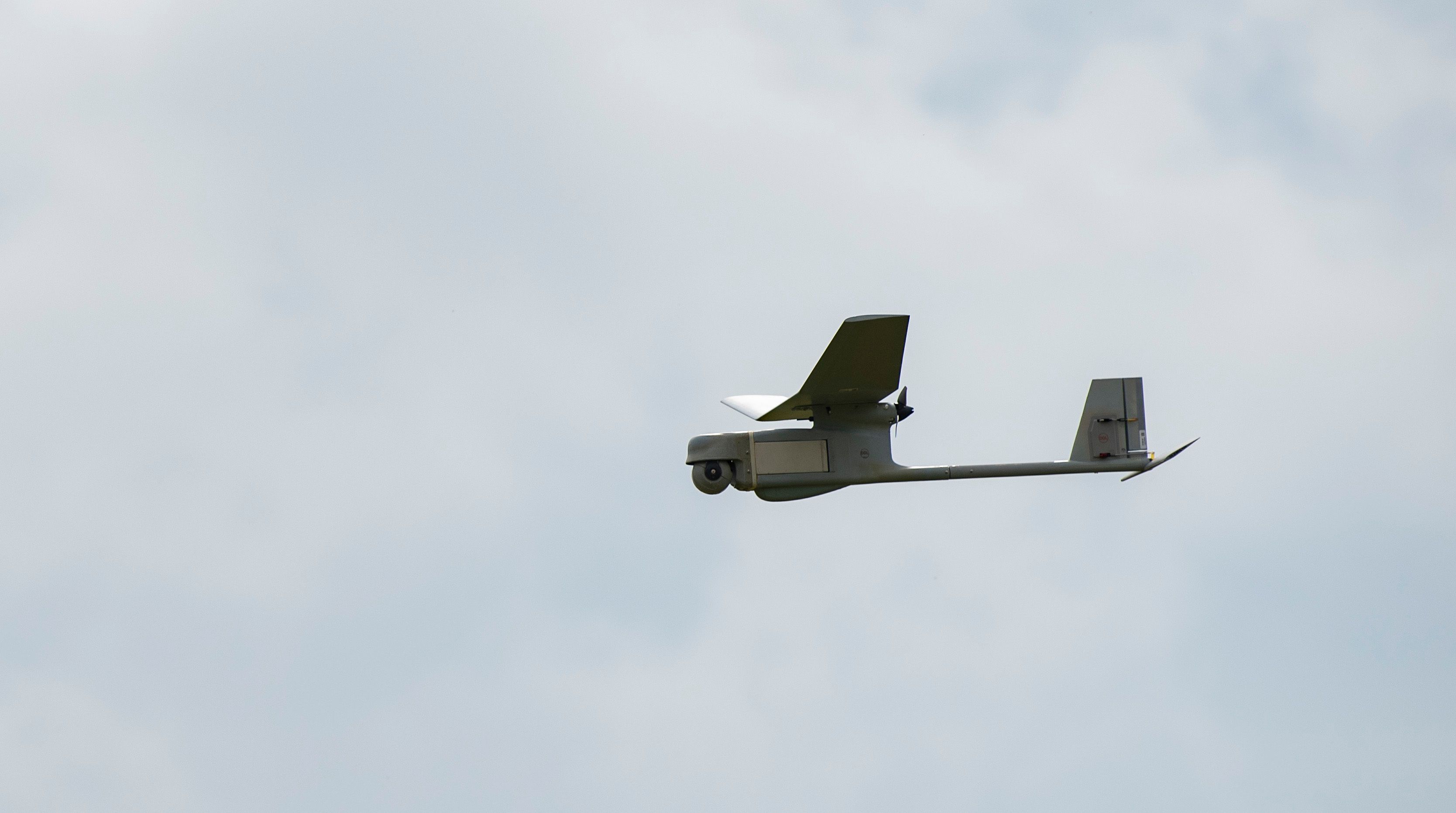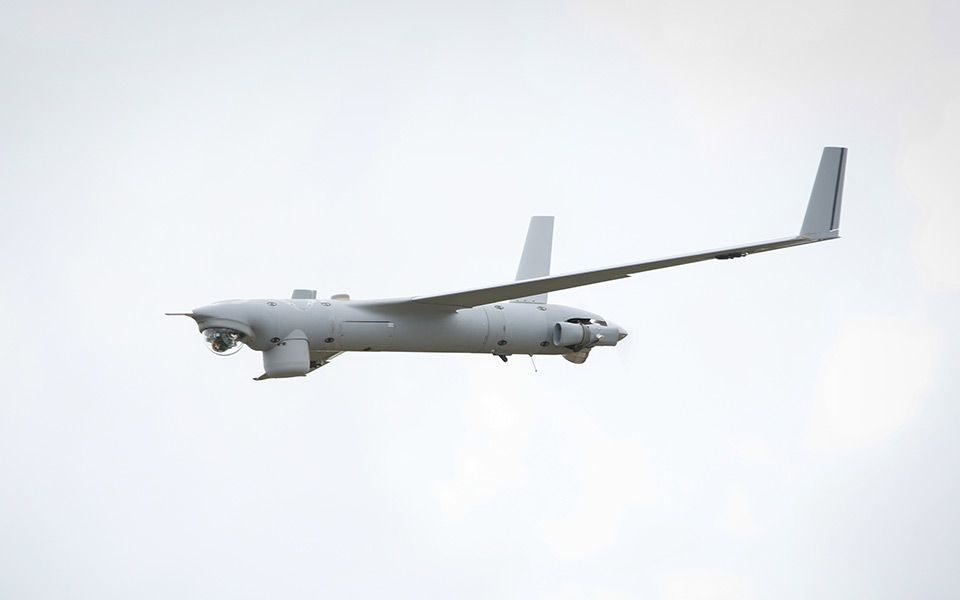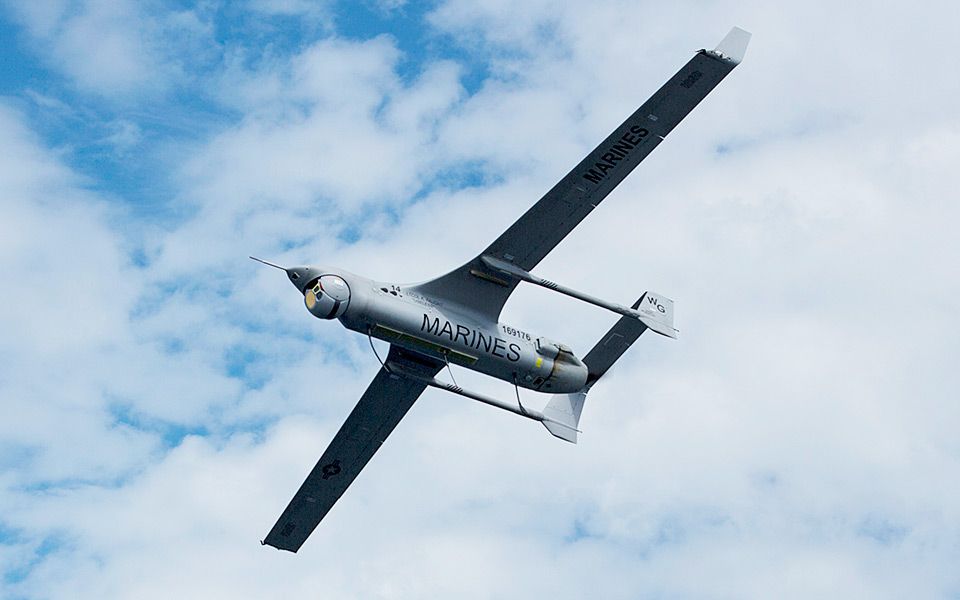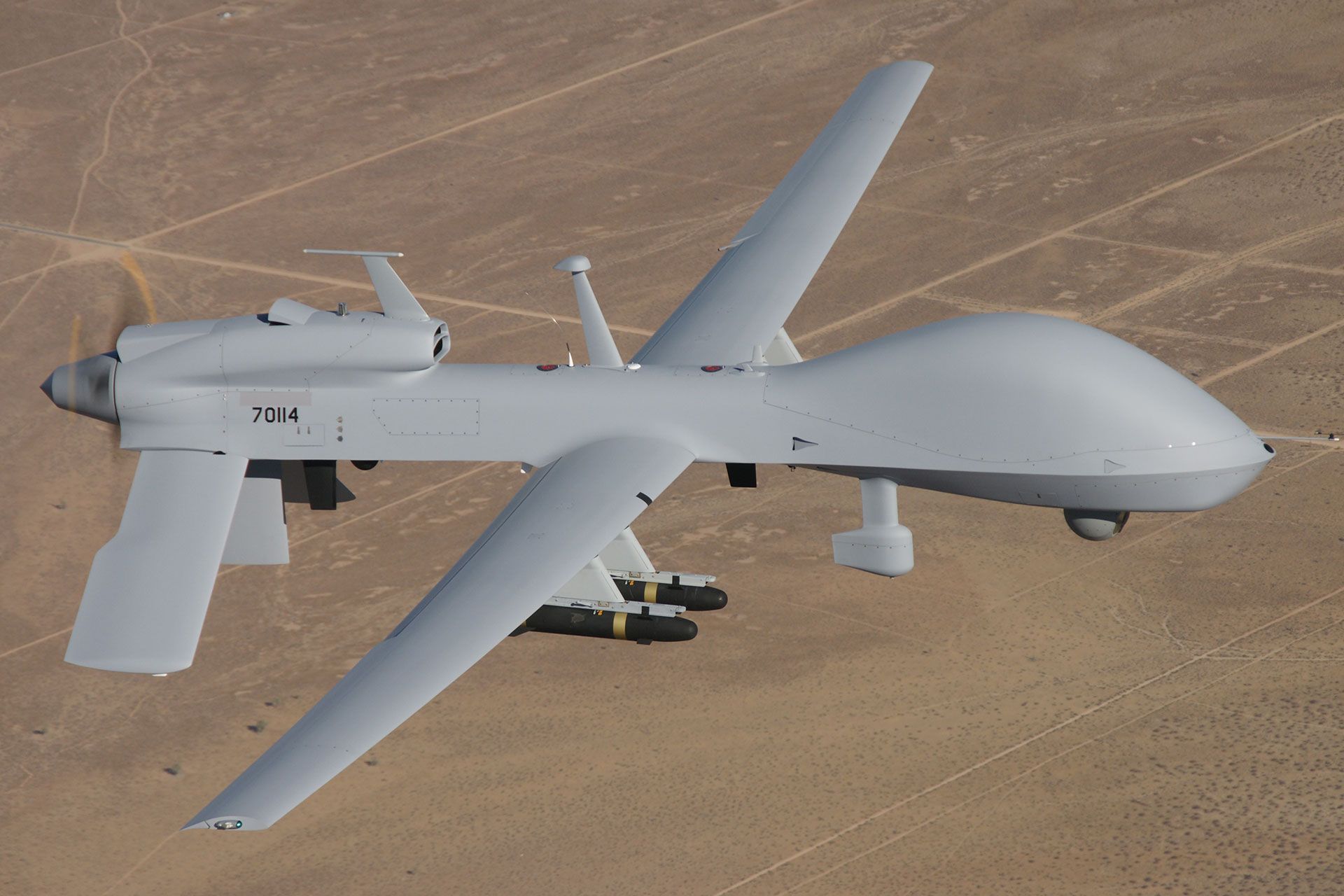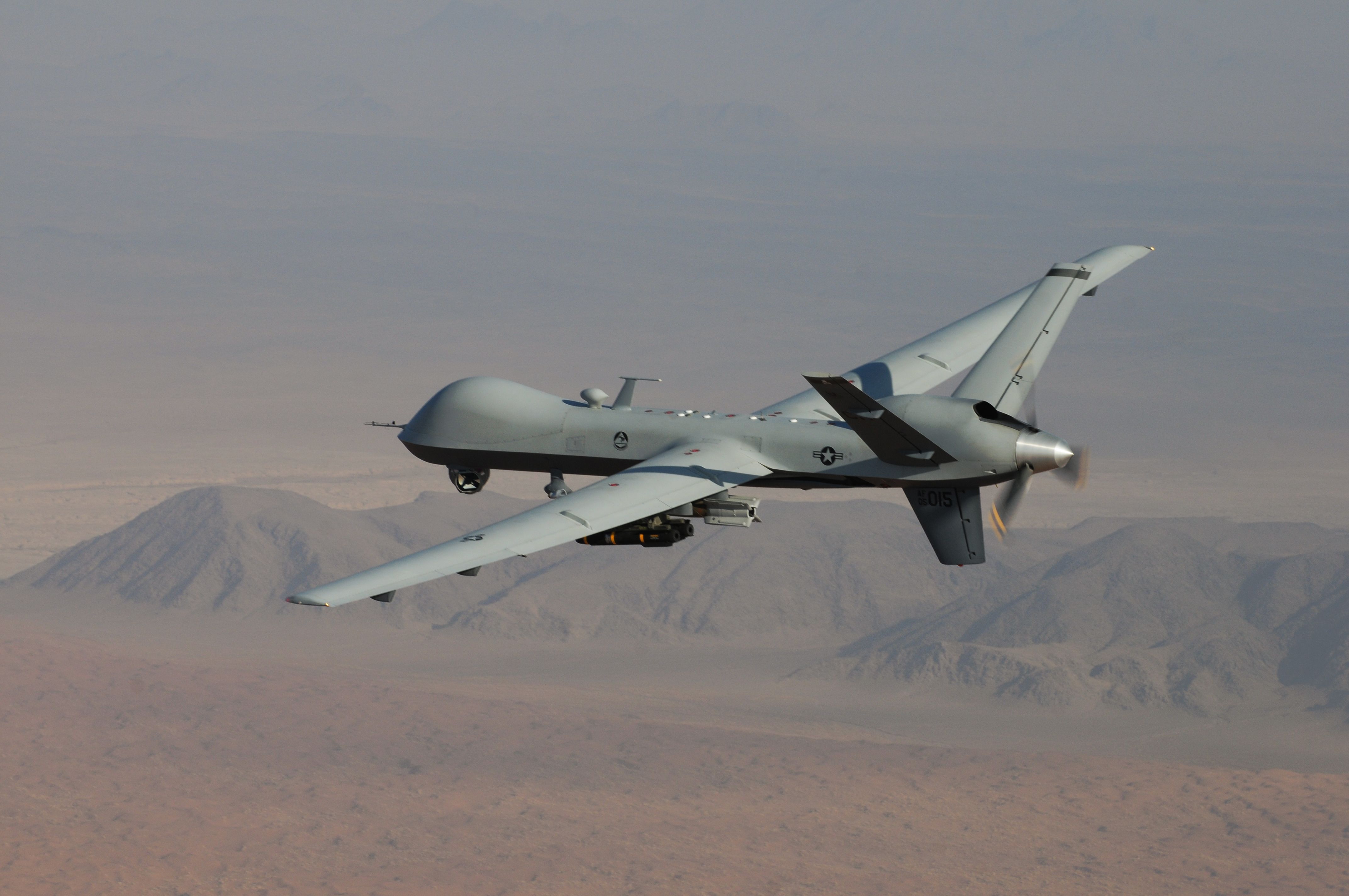Summary
- Group 1: Small drones used for local reconnaissance, e.g., RQ-11 Ravens.
- Group 2: Longer-range drones with increased capabilities, e.g., ScanEagle, Flexrotor.
- Group 5: Sophisticated, large drones for recon and strike missions, e.g., MQ-9 Reaper, RQ-4 Global Hawk.
The words “unmanned aerial system,” “drone,” and “UAV” are applied to a mindboggling large number of autonomous military systems, from hobbyist FPV drones to the mighty MQ-9 Predator drones. Drones are changing the face of war but in very different ways. While small FPV and other small drones are changing the battlefield today in Ukraine, the United States is looking to advanced loyal wingman drones and aerial refueling drones to fight the war of the future.
The US Department of Defense classifies Unmanned Aerial Systems (aka drones) into five categories based on size and performance. These are the five Unmanned Aerial Systems groups as defined by the DoD, along with corresponding examples of US military drones.
1
Group 1
As the smallest group of drones, these are often used at the company level and have a range of only a few miles
|
Maximum takeoff weight: |
0-20 lbs |
|---|---|
|
Nominal operating altitude: |
<1,200 feet (above ground level) |
|
Speed: |
100 knots |
As the grouping of the smallest drones, Group One also includes the largest number of military drones. Examples of Group One drones include RQ-11 Ravens, WASP, and Puma. The RQ-11 Raven is a small hand-launched drone used by the US military and other militaries and used for local reconnaissance missions at the company level. It appears that the DoD does not include one-way-loitering munitions (such as Switchblade drones) in its lists of UAS/drone examples.
Photo: US Air Force
This grouping of drones would also include many of the small drones seen in the War in Ukraine. In that war, small drones are revolutionizing the way war is fought, taking out everything from tanks to individual soldiers. However, nations are also rushing a large range of countermeasures that may result in small drones being effectively countered on the battlefield in the very near future.
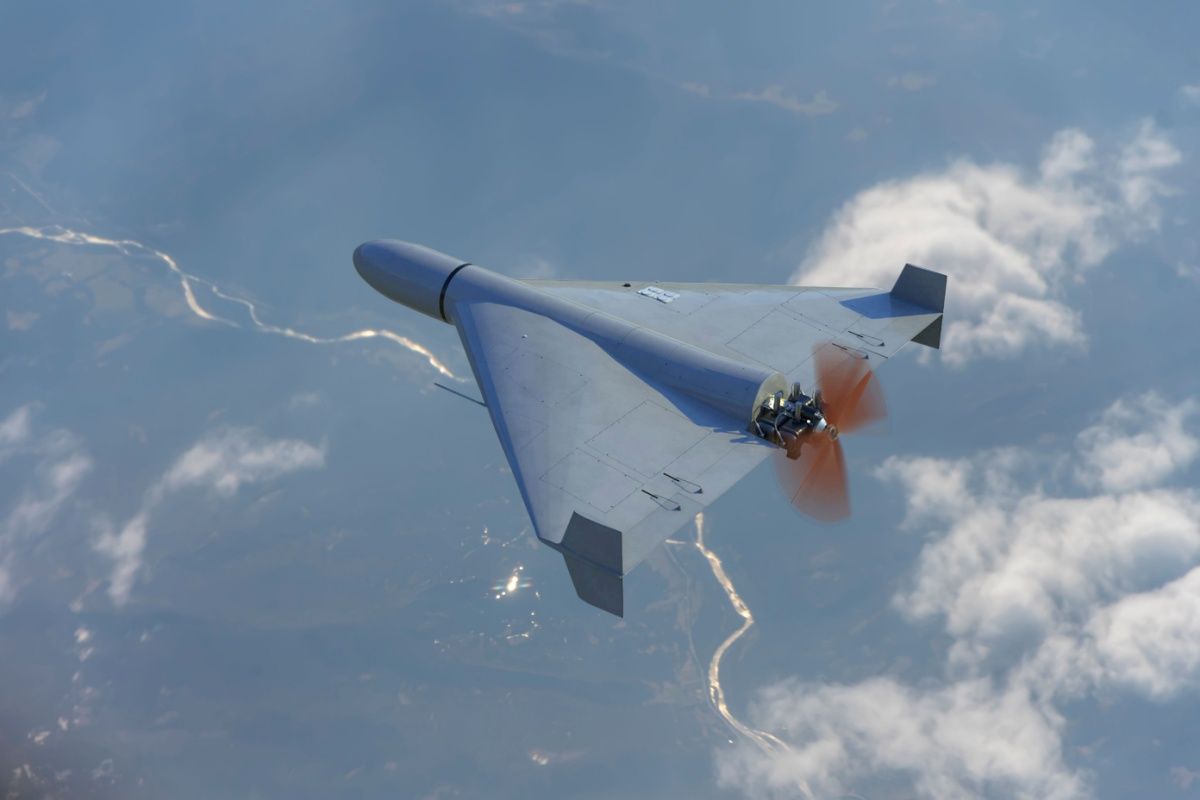
Related
Drone Dogfights Put A New Twist On Air War Between Russia And Ukraine
Ukraine has now demonstrated the ability to take out high-flying Russian drones with other drones, which is a potentially important development.
2
Group 2
Group 2 includes many small UAVs destined for longer-range missions and have increased capabilities compared to Group 1
|
Maximum takeoff weight: |
21-55 lbs |
|---|---|
|
Nominal operating altitude: |
<3,500 (above ground level) |
|
Speed: |
<250 knots |
The United States military operates many thousands of small surveillance and reconnaissance drones in the Group 2 category (although some may have been adapted for combat). Examples of Group Two ScanEagle, Flexrotor, SIC5, and PDW C100. These normally have longer ranges and greater endurance than Group 1 drones; e.g., the Flexrotor boasts a 30-hour endurance and a 120-kilometer or 75-mile communications range.
Photo: Boeing
Insitu (the subsidiary of Boeing that builds the ScanEagle boasts, “ScanEagle is the industry’s most trusted long-endurance UAS.” Many drones in this category can also be weaponized – some variants of the Switchblade drone may fit into this category if expendable loitering munitions were to be included.
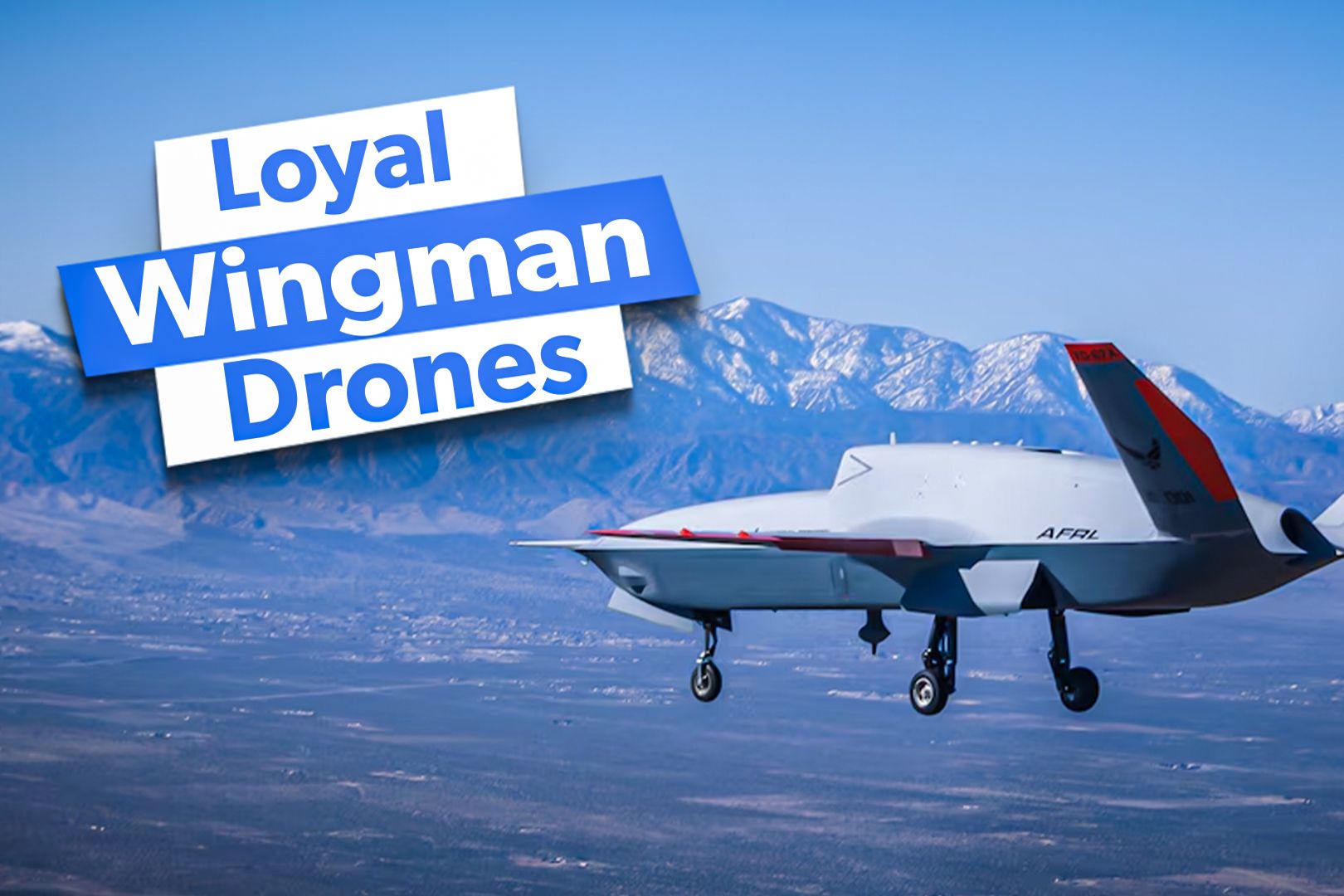
Related
5 Advanced Loyal Wingman Drones In Development
Loyal Wingman drones are being developed as force multiplies for current and next-generation fighter jets around the world.
3
Group 3
Group 3 are medium-sized drones that can often carry payloads but are smaller than the missile-carrying Gray Eagles and Predators
|
Maximum takeoff weight: |
<1,320 lbs |
|---|---|
|
Nominal operating altitude: |
< Flight Level 180 |
|
Speed: |
<250 knots |
The United States military operates many drones in the Group 3 category. Examples include the Shield AI, V-BAT, RQ-7B Shadow, RQ-21 Blackjack, Arcturus-UAV Jump 20, Navmar RQ-23 Tigershark, SIC25, Vanilla Unmanned, and others. The RQ-7 Shadow is a drone used for reconnaissance, surveillance, target acquisition, and battle damage assessment.
Photo: Boeing
Boeing states that the RQ-21 Blackjack is “modular, versatile, and multi-mission capable, providing rapid transitions between land and maritime environments.” It has six payload spaces that can carry up to 39 lbs and has been exported to militaries around the world.
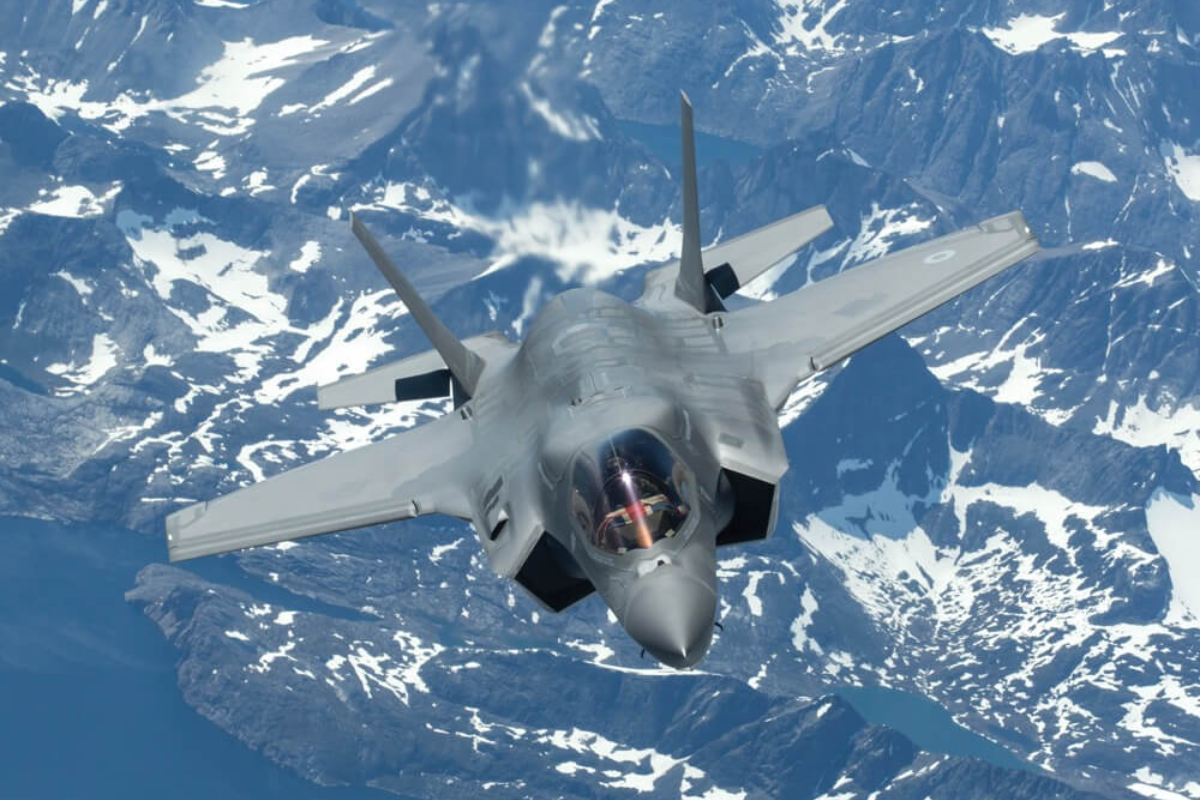
Related
RAF F-35 Lightning Stealth Fighter Has Near Miss With A Drone Flying 36x Legal Height
A fifth-generation British F-35B came close to colliding with a quadcopter drone flying high in the sky.
4
Group 4
Some of the US iconic missile-equipped drones like the Gray Eagle belong to Group 4
|
Maximum takeoff weight: |
>1,320 lbs |
|---|---|
|
Nominal operating altitude: |
> Flight level 180 |
|
Speed: |
Any airspeed |
Group 4 includes some of the smaller “large” drones operated by the United States military. Examples include the MQ-8B Fire Scout, the MQ-1A/B Predator, and the MQ-1C Gray Eagle. It may look similar to the MQ-9 Reaper, but it is actually much smaller.
Photo: General Atomics
The Gray Eagle is a medium-altitude, long-endurance drone built by General Atomics (it is an upgrade of the older MQ-1A/B Predator). It has been adapted to carry 4x AGM-114 Hellfire missiles or 8x AIM-92 Singers and is operated by the US Army. It has a max speed of 167 knots, an endurance of 25 hours, and a service ceiling of 29,000 feet.
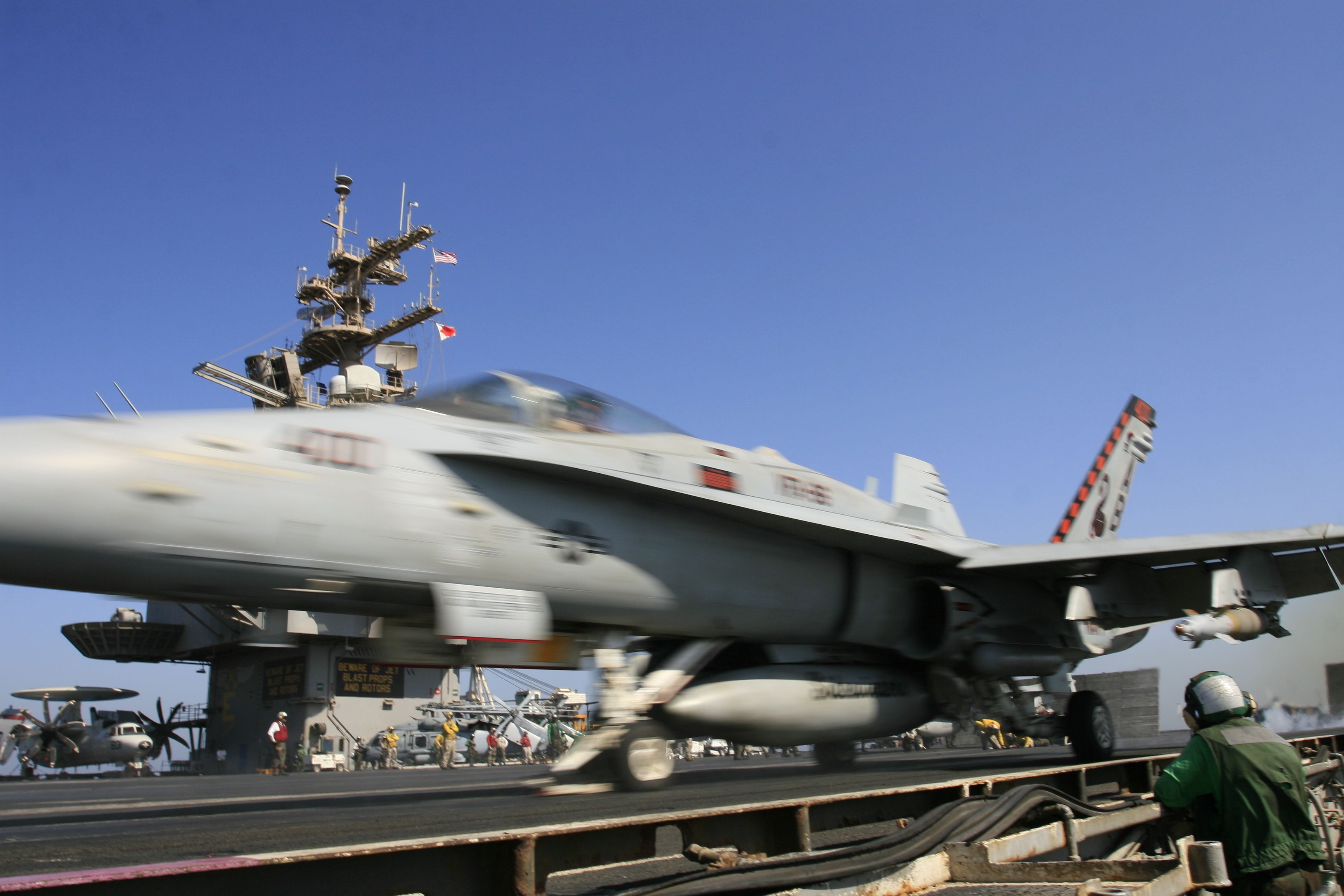
Related
US Navy Puts Out Bid For Counter NEXT Drone Fighting Tech As Attacks Persist In Red Sea
The Navy is looking for a quick kinetic counter to cheap drones used by the Houthis in the Red Sea.
5
Group 5
Group 5 drones include some of the most sophisticated military drones used for recon and strike missions
|
Maximum weight: |
>1,320 lbs |
|---|---|
|
Nominal operating altitude: |
> Flight Level 180 |
|
Speed: |
Any airspeed |
Few countries operate drones in Group 5. These are the large drones many people may associate with the US Air Force and the War on Terror. Examples of Group 5 drones include the MQ-9 Reaper, RQ-4 Global Hawk, and MQ-4C Triton. These drones cost millions of dollars and can cost as much as $30 million.
Photo: United States Air Force
These drones are used for long-range and endurance surveillance and are often armed with missiles for surgical strike missions. Drones of this type have been mostly absent from the War in Ukraine – although one US MQ-9 Reaper was downed by Russian fighter jets as it was conducting reconnaissance missions over the Black Sea in international waters.
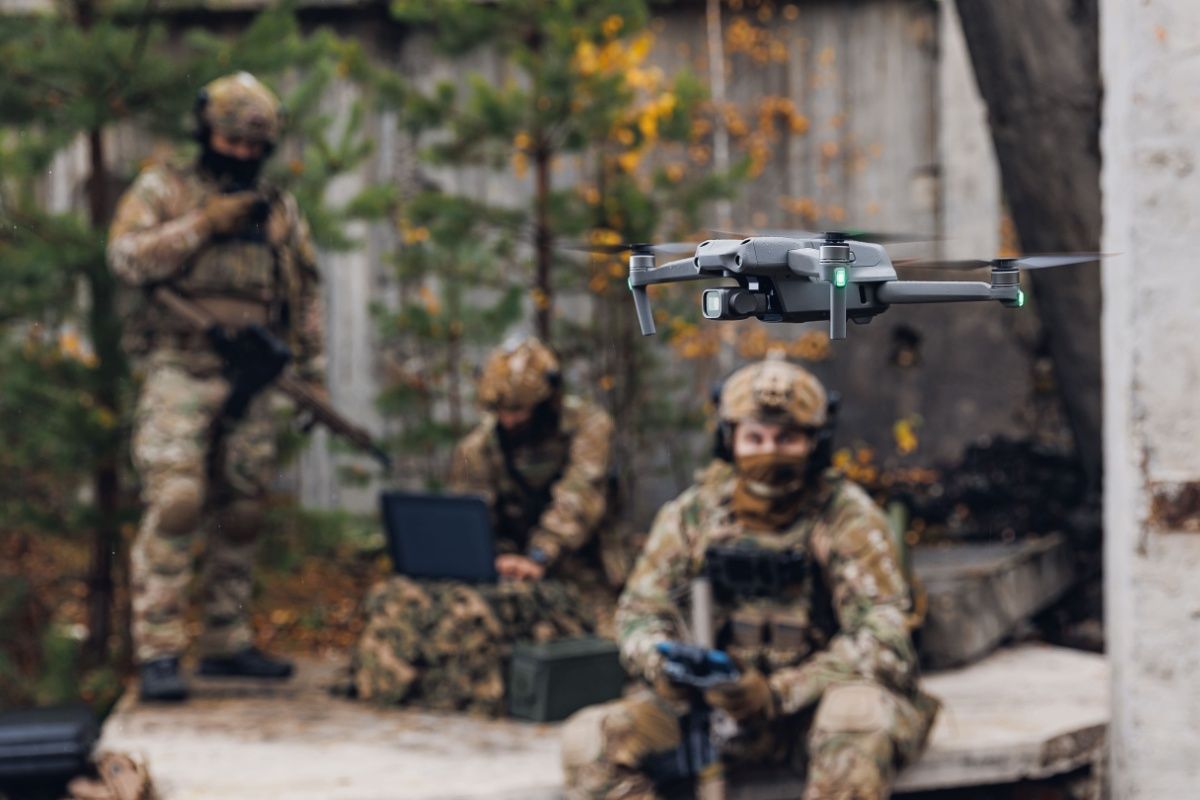
Related
Unmanned Systems Forces: Ukraine Is The 1st Country In The World With A Drone Military Branch
Ukraine has established the first dedicated ‘drone force’ as the use of drones continues rewrite the way war is fought in Ukraine.

